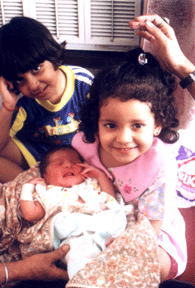Jan 05, 2026
Jan 05, 2026
by Kamna Raj
 Play is the universal language of childhood. Children's lives and learning are full of play. It is through play that children understand each other and the world around them. Through play they develop the skills required for competence in cognitive, creative and social spheres.
Play is the universal language of childhood. Children's lives and learning are full of play. It is through play that children understand each other and the world around them. Through play they develop the skills required for competence in cognitive, creative and social spheres.
Play is defined as a behavior that is self-motivated, freely chosen, and pleasurable. There is no "right way" or "wrong way" in play. Psychologists observe that children enhance cognitive skills through play that involves practice, imagination and re-creation of events. Jerome Bruner believes that play is crucial for the development of intellectual skills (Bruner, Jolly, & Sylva, 1976). In play children can experiment without interference, and in doing so they may build complex abilities. The rules that govern imaginary games teach children to separate thoughts from objects and to exercise self-control (Vygotsky, 1978). Children also learn cooperation, and conflict resolution through play friendships.
Some tips for parents:
23-Apr-2000
More by : Kamna Raj